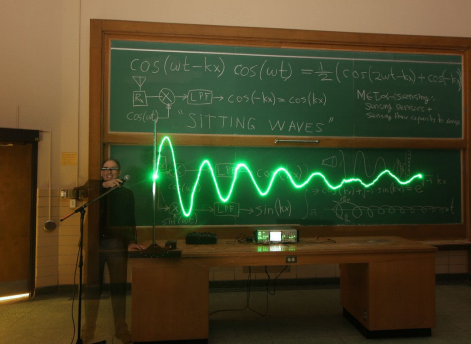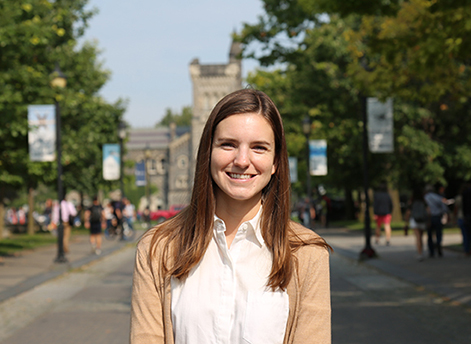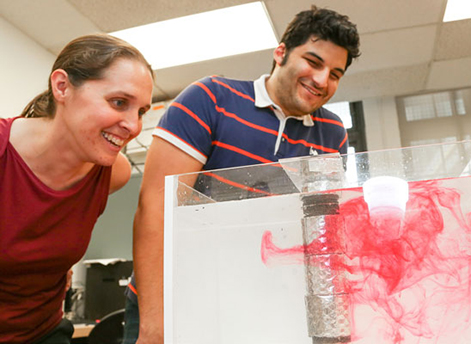December 20, 2017 – As 2017 winds down and U of T students get a much-deserved holiday hiatus from their studies, there are a number of cool courses awaiting them when class starts up again. Specialized non-technical courses, known as APS courses, are administrated by U of T Engineering and cover many different – and important – areas of interests for engineering students.
Whether a student wants to get inventive, get a better understanding of how engineering can solve global challenges, or develop leadership and team-building skills, U of T Engineering has it covered.
Here are just a few cool APS courses to look into for Winter 2018:
APS 1041: Inventrepreneurship (Invention + Entrepreneruship)

In APS 1041, Professor Steve Mann (ECE), prolific inventor and founder of the field of wearable computing, wants to be your inventor-mentor.
“There is a lot of innovation that comes from entrepreneurship, it’s a common blend. But what I’m bringing is a blend of invention and entrepreneurship,” said Professor Mann who will teach alongside a team of world-class collaborators and entrepreneurs.
Open to graduate students, Professor Mann hopes to instill the art and science of invention and entrepreneurship, with the final deliverable of the course being a working prototype and patent application relating to a new invention in wearable computing, phenomenal augmented reality, or sensory augmentation.
“The intention is to bring these inventions forward to market,” said Professor Mann. “My goal here is to mentor students to become inventors and take something – a product that matters – into the world.”
APS 343: Engineering Leadership

Taught through the Institute for Leadership Education in Engineering (ILead), APS 343 gives students a running start for when they graduate and join organizations of engineers working together towards a common goal.
“Leadership skills continue to be sought after in industry and have become a large differentiator in hiring,” said Professor Alison Olechowski (MIE, ILead), who will be co-teaching a second section of the course with Professor Doug Reeve (ChemE, ILead), while Professor Patricia Sheridan will teach the first section.
Throughout the course, students work in teams with peers from the different engineering disciplines, with much of the learning taking place through discussion, activities and reflection. The course includes a project where students are paired with a CEO of an engineering-intensive organization to interview.
“This is an active course – it is not the kind of course where you can just show up, copy the notes, and do well,” added Professor Sheridan. “The skills students develop in this course around understanding others, building relationships, and influencing change, give them the foundation to develop a meaningful understanding of the context of their work.”
APS 530S: Appropriate Technology and Design for Global Development

Open to undergraduate and graduate students, APS 530S is taught by Professor Amy Bilton (MIE) and focuses on designing technology to aid in global development.
“Nearly 10 per cent of the world’s population lives on less than $2 a day. Due to the large market and the potential impact, engineering in the area of global development is a growing area,” said Professor Bilton. “This course will provide students a chance to get involved.”
Over the years, the course has been highly reviewed because of its uniqueness and the kinds of skills students develop, blending the technical content with social content. Students get to explore aspects of social, cultural, economic, environmental and political aspects important for design, and then apply this in a design project focused on different development challenges.
By the end of the course, students would have a fully developed prototype. Previous student teams have taken their projects forward with grants through Grand Challenges Canada and worked with World Vision Canada towards field evaluation of their concepts.